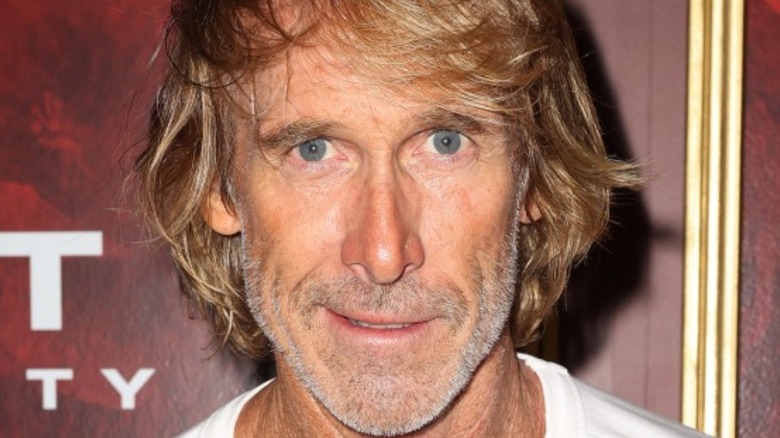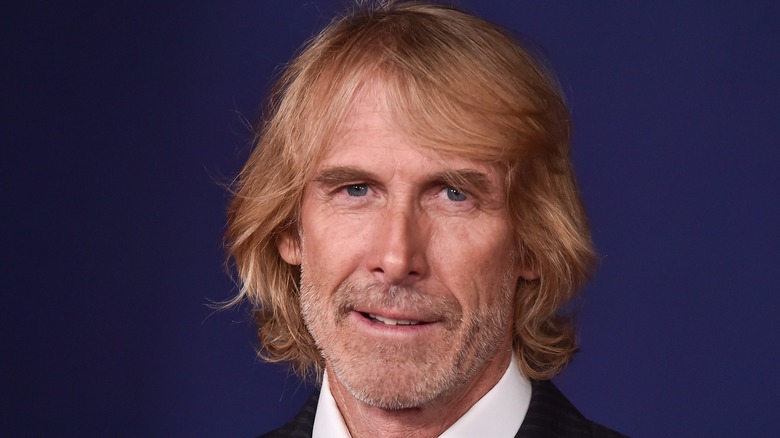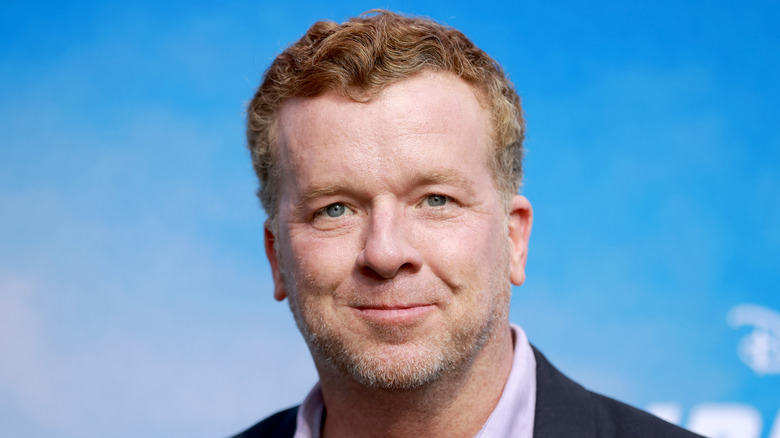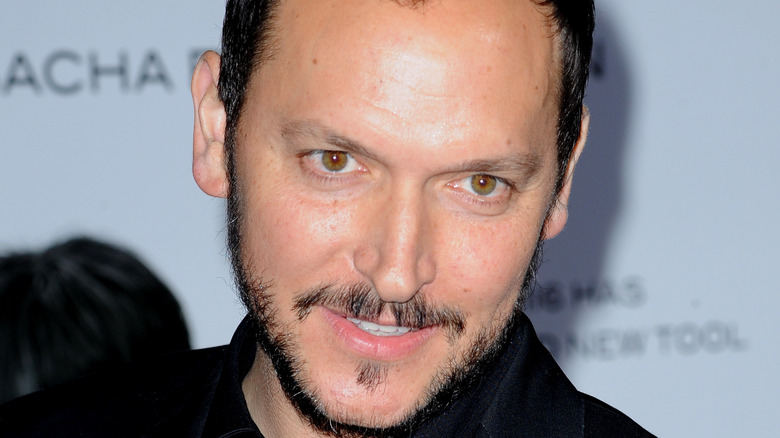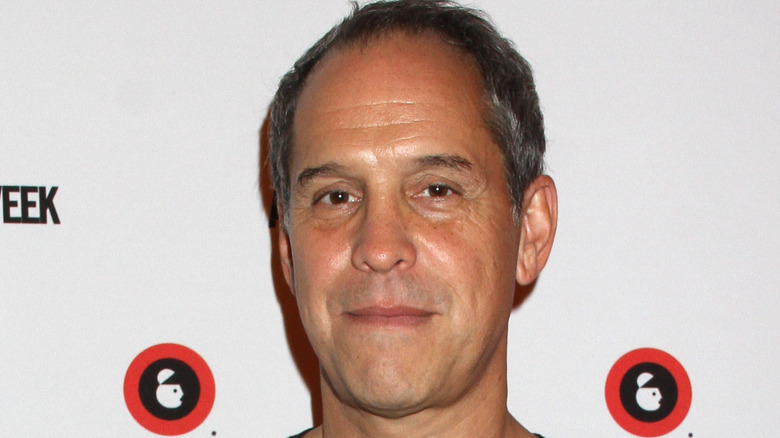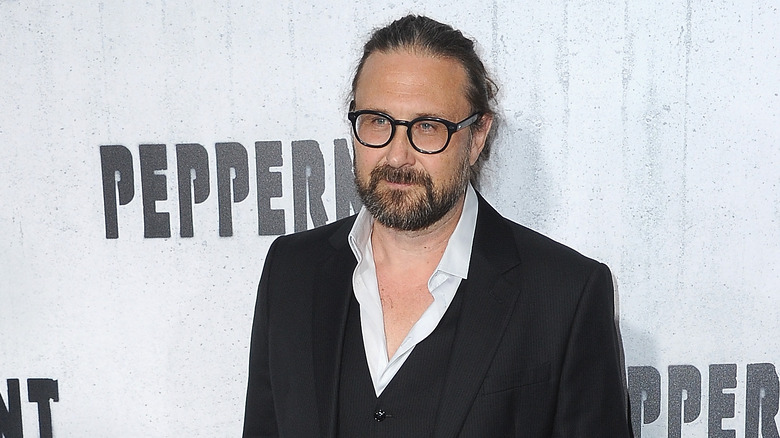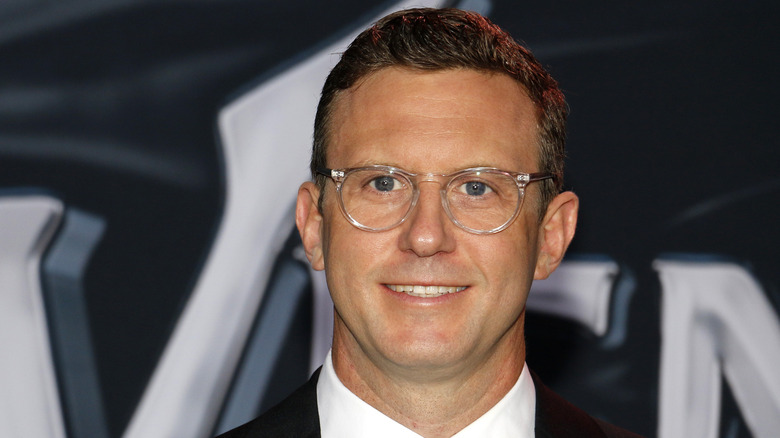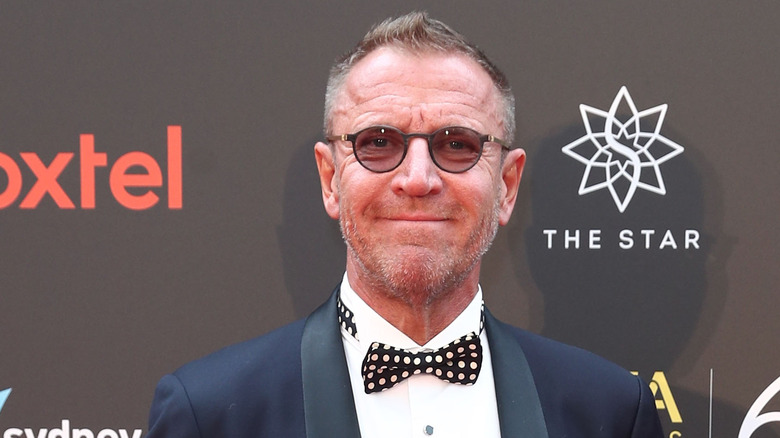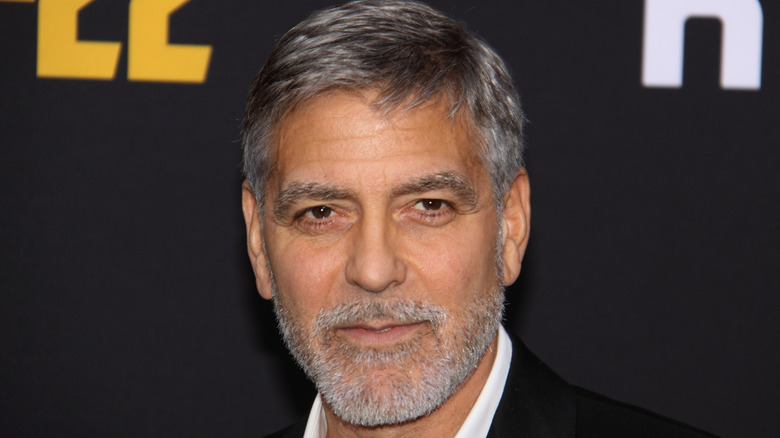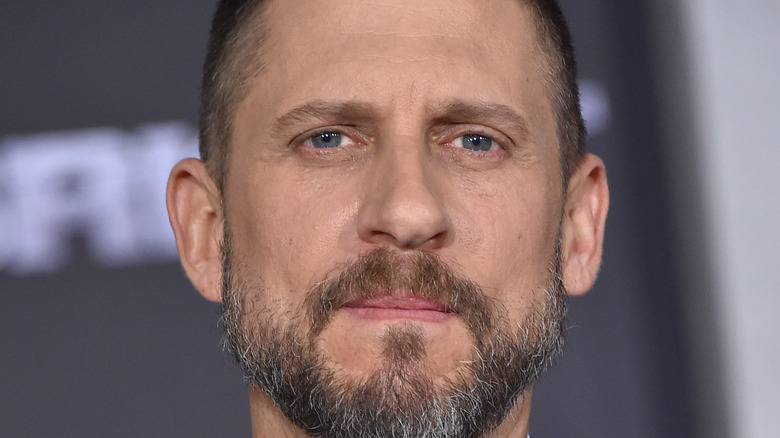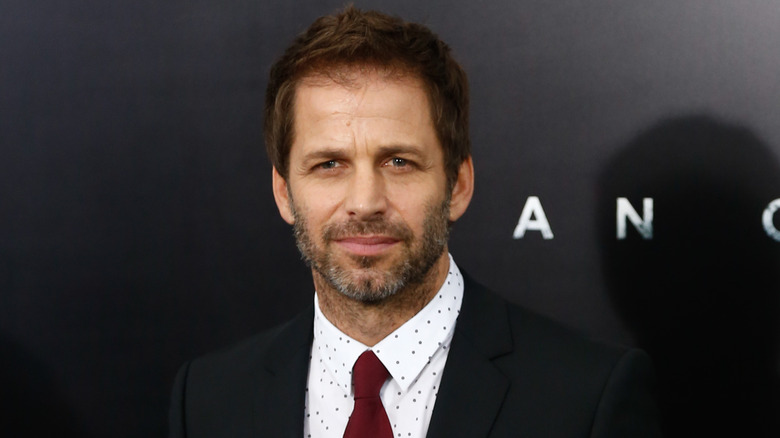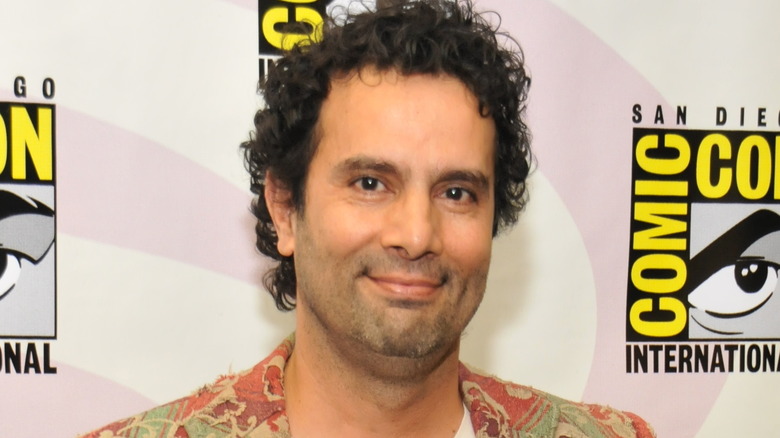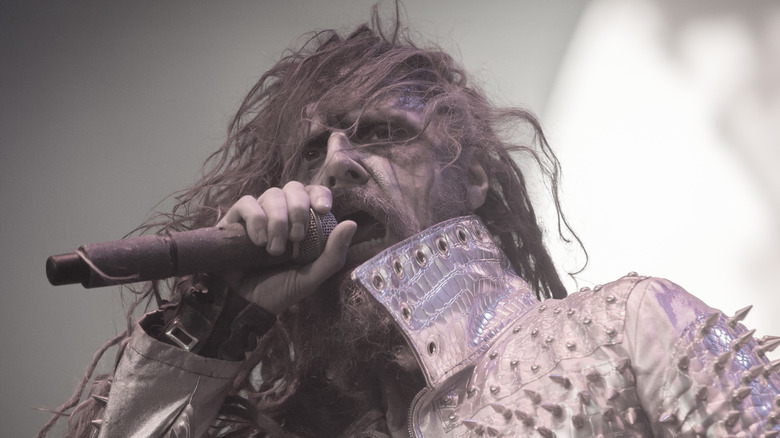15 Surprisingly Good Movies Made By Bad Filmmakers
With so much money involved and such high stakes tied to audience reception, a good filmmaker's reputation can be severely tarnished by a single bad movie. On the other hand, there are some filmmakers out there who have a reputation for being "bad" in most cinematic discussions, yet they are able to continuously get big-budget projects financed regardless. A movie's critical reception rarely counts for as much as its box office numbers, furthering the occasional divide between critics and the average moviegoer.
So-called "bad" filmmakers having flourishing careers is usually a case of considerable financial success in the face of critical derision. One critic's trash can be an audience member's treasure all the same. Other times, a string of weak movies can be overlooked for a director who occasionally turns up a diamond while mostly releasing chunks of coal. Just like a broken clock is right twice a day, a filmmaker who typically makes poor movies can release a genuinely good movie between all the duds. The following filmmakers all have less-than-sterling reputations amongst cinephiles and have had the vast majority of their filmographies reviled by critics, but they all have one or two surprisingly good movies that stand heads and shoulders above the rest of their cinematic output.
The Rock - Michael Bay
Michael Bay's blockbuster action movies often serve as a target of ridicule for film critics, who have left all but two films he's directed with negative scores on Rotten Tomatoes. However, Michael Bay's movies typically perform extremely well at the box office. Two of his "Transformers" both raked in over $1 billion worldwide, and five of his movies rank amongst the top 200 highest-grossing movies of all time.
Bay has made it abundantly clear that he doesn't care about the critical response to his films. He makes no bones about the fact that he isn't aiming to create high-brow art, famously saying "I make movies for teenage boys. Oh, dear, what a crime," per Slate.
One film from early on in his career, however, managed to get the majority of critics on his side: "The Rock." After making a name for himself as a commercial and music video director, Bay transitioned into making feature films. His second narrative movie was one that most people could agree was a genuinely good action movie. "The Rock" pairs up Nicholas Cage and Sean Connery as an action-hero duo out to stop Ed Harris and his team of soldiers-turned-terrorists from attacking the city of San Francisco with nerve gas. The Alcatraz prison setting is well-utilized, and the action avoids ballooning into the absurd, over-the-top spectacle that plagues the rest of Bay's filmography. "The Rock" finds Bay keeping his more indulgent sensibilities in check with a level of restraint not found in his other work.
The Babysitter – McG
Joseph McGinty Nichol, better known by the stage name McG, first rose to prominence in the music industry. He began his career as a music producer before transitioning into a successful career as a music video director working throughout the '90s with bands like Barenaked Ladies, Sublime, Smash Mouth, and plenty of others. He eventually graduated to directing feature films, but the success he found in music did not translate to cinema.
McG's first film, a reboot of the "Charlie's Angels" TV show, was met with a middling reception from critics, with the praise being lukewarm at best. What followed was almost two decades of nonstop bad movies with the likes of "This Means War," "Charlie's Angels: Full Throttle," and "3 Days to Kill."
Finally, in 2017, McG managed to put together a clear-cut winner with "The Babysitter," earning approval from critics and average moviegoers alike for the first and only time in his career. This horror-comedy about a young boy discovering his babysitter Bee (Samara Weaving) is part of a devil-worshipping murder cult was a welcome change of pace for McG's career. This victory was short-lived, however, as McG followed up this win with the poorly received sequel "The Babysitter: Killer Queen" and the terrible "Rim of the World."
Unleashed - Louis Leterrier
French director Louis Leterrier got his start in action filmmaking by working on "The Transporter" as a co-director alongside Hong Kong action veteran Corey Yuen. For his first solo spin in the director's chair, Leterrier made "Unleashed."
"Unleashed" finds Jet Li playing an animalistic fighter, who is raised by a gangster as more of a vicious dog than a human being. When he has his sensitive side appealed to by a kind young woman and a blind piano tuner, he has a change of heart and decides to leave violence behind, rankling the ire of his gangster owner. Leterrier's film boasts one of the world's top martial artists, Jet Li, in the lead role and a strong supporting cast with the likes of Bob Hoskins and Morgan Freeman. Add an original screenplay from French action auteur Luc Besson, and action sequences directed by kung fu movie master Yuen Woo-Ping, and you've got one heck of a martial-arts flick.
Unfortunately, this promising start to Leterrier's career was not an indicator of the trajectory of the rest of his career. With the exception of his version of "The Incredible Hulk," all of Leterrier's other movies have been met with widely negative reactions. His "Clash of the Titans" and "Wrath of the Titans" movies were especially abysmal and found Leterrier reaching a new low. Rolling Stone gave both movies one-star reviews, calling them "godawful" and "a sham."
Hardball, Varsity Blues — Brian Robbins
Actor-turned-filmmaker Brian Robbins has found success as a television producer, but almost every single one of his feature films as a director has been stuck with a rotten label on Rotten Tomatoes. Whether working in the comedy genre with movies like "Norbit" and "A Thousand Words," or making movies aimed at children like "The Shaggy Dog" and "Ready to Rumble," Robbins has never managed to find a clear-cut winner.
The closest Robbins has come to success have been endeavors in the sports genre with 1999's "Varsity Blues" and 2001's "Hardball." "Varsity Blues" is a football movie starring the likes of James Van Der Beek, Paul Walker, and Jon Voigt and tells the story of a backup quarterback getting his shot in the spotlight. "Hardball" is a baseball movie starring Keanu Reeves as a gambling addict turned Little League coach who tries to turn his life around while forming a romance with Diane Lane. Audiences were receptive, and they each have respectable IMDb scores and decent followings amongst sports fans.
These decent sports movies arrived early on in Robbins' movie-directing career, and it was only downhill from there. After the especially harsh reception of the Eddie Murphy-led "A Thousand Words," earning a bottom-of-the-barrel 0% score on Rotten Tomatoes, Robbins hasn't directed anything in the decade since, though he has continued producing.
District B13 - Pierre Morel
After beginning his career as a cinematographer and a specialized Steadicam operator in the early '90s, Pierre Morel made a bold leap into feature filmmaking in 2004 with "District B13." After making a great parkour-infused action movie as his first film, every single movie Morel has made since has earned a lowly rating on Rotten Tomatoes.
"District B13," stars the badass duo of David Belle, the founder of Parkour, and veteran stuntman and fight choreographer Cyril Raffaelli. With a script co-written by Luc Besson and Bibi Naceri, the film is set in a futuristic, crime-riddled Paris slum walled off from the rest of society and abandoned to its own devices by an uncaring government. Raffaelli plays a long-term undercover cop who heads into the titular district to foil a terrorist bomb plot that would result in countless deaths. Belle plays a local district resident who begrudgingly teams up with Raffaelli to save his home and his sister.
The action sequences in "District B13" are fantastic, which makes it extra disappointing that Morel's subsequent films — though still in the action genre — have failed to deliver impressive action sequences. This debut makes it clear that Morel has the potential to direct great action movies, but his work seems to get worse with each film.
Zombieland - Ruben Fleischer
Throughout the 2000s, Ruben Fleischer built a reputation as a director working in unscripted television and short-form content. His efforts culminated in his feature-length debut in 2009, "Zombieland." This horror-comedy hybrid offered a refreshing spin on the oversaturated zombie genre. With a great cast comprised of Woody Harrelson, Emma Stone, Jesse Eisenberg, and Abigail Breslin, plus a killer Bill Murray cameo, and a funny script written by Rhett Reese and Paul Wernick, the deck was stacked in Fleischer's favor. He brought everything together in a compelling way, and brought a strong sense of style to the table, resulting in an extremely strong feature directorial debut.
Unfortunately, this first movie was as good as it ever got for Fleischer's directorial output. In the 13 years since the release of "Zombieland," Fleischer has directed five movies, four of which were panned by critics. Fleischer's only fresh movie since was the "Zombieland" sequel, "Double Tap." While not hated by critics, this sequel wasn't met with anywhere near the same fanfare enjoyed by the first movie.
After movies like "Gangster Squad" and "30 Minutes or Less" were abject failures, the future of Fleischer's career was in potential trouble. Blockbusters like "Venom" and the videogame adaptation "Uncharted" were both reviled by critics but performed well enough with general audiences to paint a clear picture of how the future of Fleischer's directorial career is likely to look: commercial success at the cost of critical disappointment.
The Long Kiss Goodnight - Renny Harlin
With terrible movies like "The Legend of Hercules," "The Covenant," "Driven," "The Misfits," and the misguided prequel "Exorcist: The Beginning" making up the bread and butter of his filmography, Renny Harlin has a much-deserved reputation as a bad filmmaker who somehow keeps getting movies made. The reason studios continue to trust him with large budgets likely has something to do with the goodwill engendered by a couple of lukewarm action movies near the start of his career, "Die Hard 2" and "Cliffhanger," and the only surprisingly good movie in his entire filmography, "The Long Kiss Goodnight."
Geena Davis and Samuel L. Jackson give a pair of charismatic performances in the lead roles in this action-thriller with a healthy dose of humor. Renny Harlin benefited tremendously from an excellent screenplay penned by one of the industry's top screenwriters, Shane Black. Even still, there are a few major flaws in Renny Harlin's direction, like how he manages to spoil the film's major plot twist in the opening credits. Much of the film feels like it is working based on the strengths of Black's script in spite of Harlin's direction.
The Ides of March, Good Night, and Good Luck - George Clooney
George Clooney has been in plenty of great movies as an actor, but his batting average is much worse when working as a director. With "Leatherheads," "The Monuments Men," "Suburbicon," "Midnight Sky," and "The Tender Bar" all performing either poorly or extremely poorly with critics, Clooney's directorial career is mostly comprised of misses.
The two surprisingly good exceptions to this run of failures are "The Ides of March" and "Good Night, and Good Luck." Both are politically minded dramas, feature Clooney in starring roles, and were co-written by Clooney and fellow actor Grant Heslov. These two movies aren't just a little bit better than Clooney's typical directorial output, they are miraculously several orders of magnitude better than anything else he has directed. "Good Night, and Good Luck" even earned Clooney a best director nomination.
Clooney's first directorial effort, "Confessions of a Dangerous Mind," was largely well-received when it was released in 2002, but it doesn't have a perfectly clean legacy. The movie utilized a script written by the great Charlie Kaufman and, by all accounts, Clooney did not deliver on the inherent promise or goals of that screenplay. Kaufman has been open about his dislike for the finished movie, saying "I'm not happy with that movie," and "George Clooney changed the script, he didn't talk to me during production. We kind of didn't get along."
Fury, End of Watch - David Ayer
David Ayer found a pair of winners in the early 2010s with "End of Watch" and "Fury," which were both certified fresh by Rotten Tomatoes critics. Everything else he directed before and since has been poorly received at large. At the bottom of the barrel of Ayer's filmography are infamously bad movies like "Bright" and "Suicide Squad." His latest movie was "The Tax Collector," which earned Ayer his lowest critic score on Rotten Tomatoes yet.
Both "Fury" and "End of Watch," luckily, sit on the polar opposite end of the spectrum when it comes to critical reception. "Fury" is a World War II movie that follows a tank crew on a behind-enemy-lines mission that could be a suicide run. The performances from the small core cast and the battle sequences both earned widespread praise.
"End of Watch," on the other hand, is a police drama that pairs up Jake Gyllenhaal and Michael Peña as partners who fall into violent conflict with a drug cartel. The film makes novel use of found-footage and mockumentary visual styles, with the events being documented on camera by Gyllenhaal's character, and the natural chemistry between the two leads makes "End of Watch" work well.
Dawn of the Dead - Zack Snyder
Zack Snyder has a loyal fanbase, but those outside of the DCEU's obsessives often find themselves bumping up against his movies. Snyder has clear stylistic preferences — slow motion, desaturated color, speed-ramping — which work well for some viewers while leaving plenty of others feeling cold and uninvested in the stories and characters that play second fiddle to the aesthetics.
Far and above Zack Snyder's best film — and the only one to be certified fresh on Rotten Tomatoes — was "Dawn of the Dead," a remake of the George A. Romero classic. After starting as a director working in music videos, Snyder made "Dawn of the Dead" his feature-length directorial debut in 2004. It is a bit telling that Snyder's best film was the one where his personal stylistic sensibilities hadn't fully formed and before he had near-endless resources to overindulge in his aesthetic fixations.
The 2004 "Dawn of the Dead" remake never reaches the highs of Romero's original, but it is a top-notch zombie movie. A strong script written by James Gunn helps elevate the film above similar zombie movies released around the same time. Gunn keeps the basic premise of survivors holing up inside a shopping mall during a zombie outbreak from the original film while changing up the plot and characters entirely, and Snyder's directorial choices work in service of the story, which cannot be said of his other work.
The Fall - Tarsem Singh
Tarsem Singh is another filmmaker who got his start directing music videos. After a poorly-received feature-length debut with "The Cell," Singh rebounded with "The Fall." Every film Tarsem has made since — "Mirror Mirror," "The Immortals," and "Self/less"– has been widely disliked by critics and audiences alike on Rotten Tomatoes. He has not directed a feature film since 2015 after the release of "Self/Less," which was a critical failure and a box office bomb.
A startling departure from his other work, "The Fall" presents a complete and compelling artistic vision. The rather simplistic storybook-style plot is offset by a wealth of visual splendor. This film makes it clear that Tarsem has the potential to deliver phenomenal cinematic images, but the rest of his career that followed has failed to deliver on that potential. The reason why might be found within an interview he did with Roger Ebert, who called "The Fall" "one of the most extraordinary films I've ever seen."
Tarsem revealed that after failing to find investors, he financed it himself. But this was no cheap indie film. "The Fall" is gargantuan in scope and was shot in 28 different countries over the course of four years, racking up a staggering $30 million budget straight from Tarsem's pocket. Sadly, "The Fall" was a massive financial failure and earned back under $4 million. After facing such a large personal financial setback with the failure of his passion project, it's no wonder that Tarsem's subsequent movies have all been mainstream director-for-hire gigs.
The Devil's Rejects - Rob Zombie
Rob Zombie rose to fame as the founder and head of the heavy metal band White Zombie. He began directing the band's music videos and eventually transitioned into a career as a feature filmmaker working exclusively in the horror genre. His love for horror was apparent in his music, with the band even taking its name from an old Bela Lugosi horror film.
Although he has now made nine movies over the course of two decades, not a single one has managed to earn a fresh score on Rotten Tomatoes. Even "The Devil's Rejects" was saddled with a rotten critic score, but it is a surprisingly strong piece of work amidst Zombie's filmography. General audiences enjoyed it much more than critics, and dedicated horror fans have taken a strong liking to the film.
The plot follows the hillbilly Firefly family, played by Bill Moseley, Sid Haig, and Sheri Moon Zombie (Rob Zombie's wife), a group of depraved criminals who gleefully torment their victims. Their typical routine is disrupted by an unhinged sheriff, played by William Forsythe, who might be even more disturbed than they are. The Firefly family also appears in "House of 1000 Corpses" and "Three From Hell," but those other outings didn't fare as strongly.
